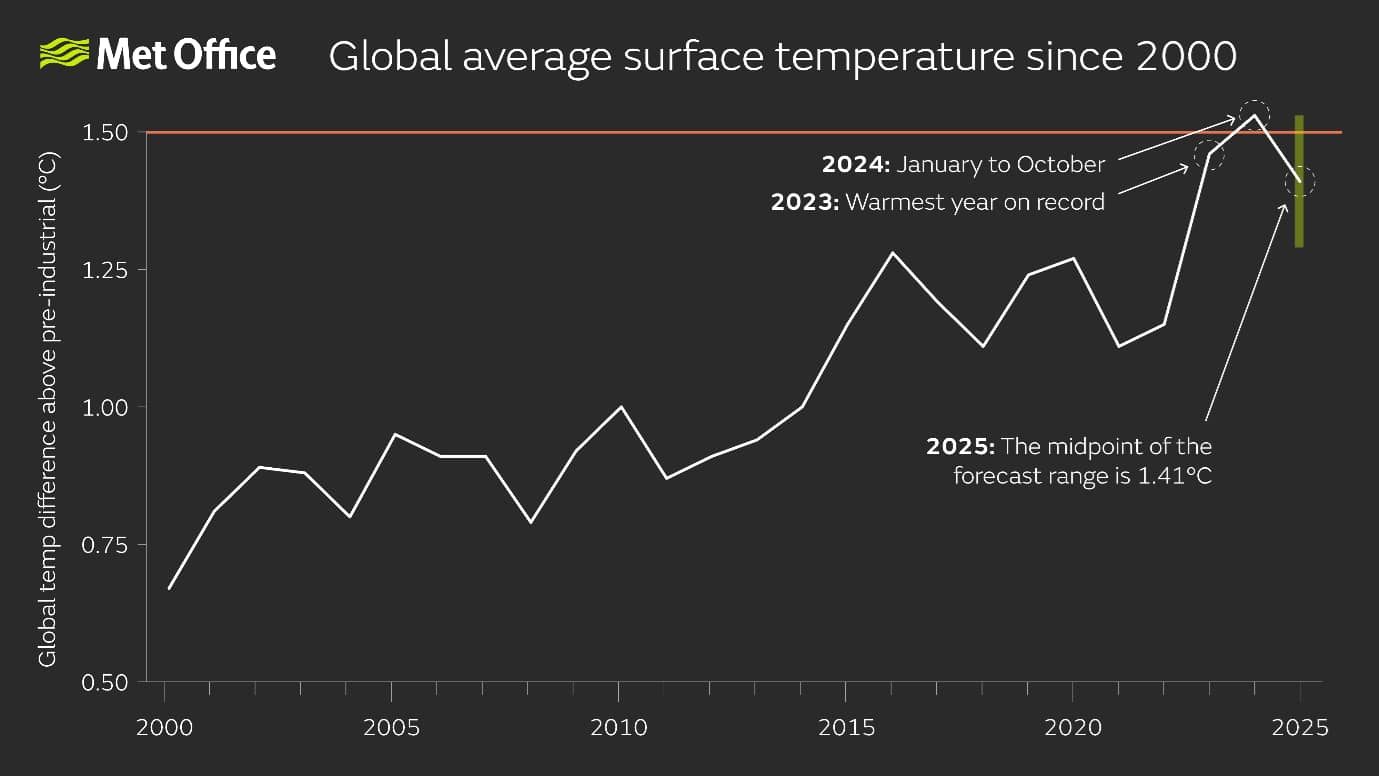Met Office says the outlook for 2025 suggests it will likely be one of the three warmest years in history.
2024 is expected to be the warmest year on record, now almost certain to exceed 1.5°C above pre-industrial levels for the first time. This follows on from the record-breaking 1.45°C in 2023, the previous warmest year on record.
The major contribution to the warming is the increasing concentration of greenhouse gases. However, global temperatures for 2024 and 2023 have been elevated slightly by a process of natural climate variation known as El Niño, where warmth from the tropical Pacific warms the global atmosphere. Sea-surface temperatures have also been warmer than average across much of the world’s oceans.
Professor Adam Scaife leads the team behind the Met Office’s global forecast for 2025. He said: “Interestingly, the warm 2025 predicted global temperatures occur despite the tropical Pacific moving towards a La Niña phase which is driving slightly cooler conditions.
“Years, such as 2025, which aren’t dominated by the warming influence of El Niño, should be cooler. 2016 was an El Niño year and at the time it was the warmest year on record for global temperature. In comparison to our forecast for 2025 though, 2016 is now looking decidedly cool.”
Prof Scaife added, “The 2023/24 El Niño event has temporarily provided a boost to global temperature, adding a peak to the rising temperatures driven by years of increasing greenhouse gas emissions. However, climate researchers are also actively looking at other factors responsible for driving the extra surge in temperatures.”
 The Met Office’s Dr Nick Dunstone, who led production of the forecast, said: “A year ago our forecast for 2024 highlighted the first chance of exceeding 1.5°C. Although this appears to have happened, it’s important to recognise that a temporary exceedance of 1.5°C doesn’t mean a breach of the Paris Agreement. But the first year above 1.5°C is certainly a sobering milestone in climate history.”
The Met Office’s Dr Nick Dunstone, who led production of the forecast, said: “A year ago our forecast for 2024 highlighted the first chance of exceeding 1.5°C. Although this appears to have happened, it’s important to recognise that a temporary exceedance of 1.5°C doesn’t mean a breach of the Paris Agreement. But the first year above 1.5°C is certainly a sobering milestone in climate history.”
The Met Officesaid they use a 20-year average to assess the Current Global Warming Level, which is updated regularly on the Climate Dashboard.
This current Global Warming Level takes into account future climate projections and recent observations of global surface temperature, giving a long-term average estimate of 1.3°C above the pre-industrial period (1850-1900).





Leave a Comment